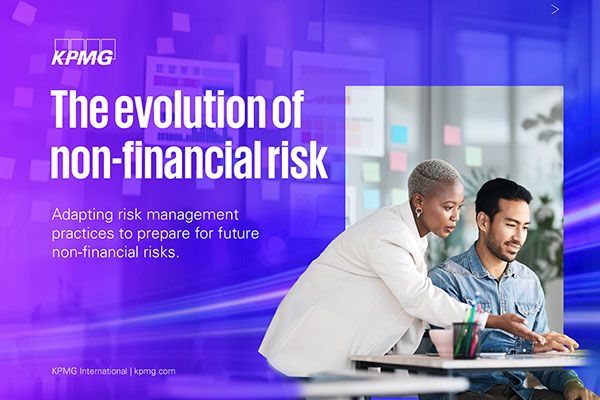In the ever-evolving landscape of financial services, the significance of non-financial risk (NFR) management has become increasingly vital. Over the past fifteen years, marked by revolutions in service delivery, operational practices and the paramount importance of trust, organizations find themselves navigating a changing terrain. As the next few years promise accelerated change amid digitization, geopolitical shifts, AI adoption and complex workforce dynamics, proficiency in NFR management emerges as a critical factor for responsible operation and prosperity.
Defined broadly as all risk types excluding credit, market, interest rate, and liquidity risk, NFR encompasses operational, regulatory, environmental, social and governance risks. Ineffective management of these risks has led to substantial losses across industries, emphasizing the need for enhanced risk practices. Looking forward, NFR is poised to remain a focal point for regulators and businesses, with stakeholders demanding transparency and accountability.
The next few years are poised to bring accelerated change, both internationally and in Belgium, against a backdrop of increasing digitization, geopolitical turbulence, large-scale artificial intelligence (AI) adoption, and complex workforce dynamics. Successfully navigating this phase may depend greatly on organizations' proficiency in non-financial risk (NFR) management.
KPMG International’s latest paper addresses the imperative for organizations to equip themselves with the tools and resources necessary for resilience against emerging risks and innovation in risk practices, focusing on five key elements for futureproofing:
Discover how convergence and integration across risk types and business functions are imperative in addressing the increasing complexity of today's organizations.
Learn strategies to ensure RMFs are dynamic, relevant, and efficient in responding to shifts in the internal and external environment.
Understand the significance of automated risk Management Information (MI) in quantifying and reporting NFR, reducing manual efforts, and enhancing decision-making organizations.
Explore the importance of Integrated Risk Management (IRM) ecosystems and Governance, Risk, and Compliance (GRC) systems in accelerating effective decision-making through centralized controls and automated workflows.
Delve into the transformative potential of Intelligent Automation (IA) in addressing NFR. IA is not a replacement for human resources but a collaborative tool for optimal risk management outcomes..
Non-Financial Risk Management is no longer optional; it has become a vital necessity for all businesses, particularly due to the ever-increasing Environmental, Social, and Governance (ESG) responsibilities of companies.
To equip organizations with the tools and insights needed to navigate non-financial risks effectively, we encourage you to read the full paper. Embrace the future with a proactive approach to risk management, ensuring resilience and adaptability in the face of emerging challenges.

The evolution of non-financial risk
Adapting risk management practices to prepare for the future.
Download PDF
Explore
Connect with us
- Find office locations kpmg.findOfficeLocations
- kpmg.emailUs
- Social media @ KPMG kpmg.socialMedia
Transforming for a future of value
Connected. Powered. Trusted. Elevate. KPMG firms' suite of business transformation technology solutions can help you engineer a different future – of new opportunities that are designed to create and protect value.







